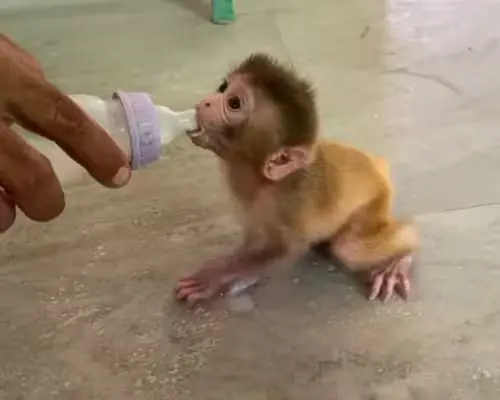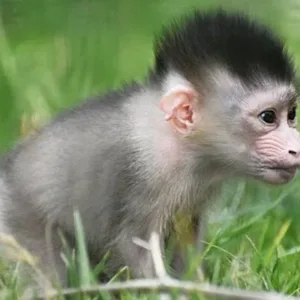If you are looking for a macaque monkey for sale, you’ve come to the right place. Our online pet shop is the best in the sale of exotic monkeys pets. Other species like Capuchin, marmoset and finger monkeys are available. Whether it’s a baby, a male or a female, we have a wide and best rated of exotic animals. At exoticanimalpet, we make it a point of honor to shipping you healthy monkeys.
Before you buy a macaque monkey, you should know that they are wildlife animals that have never been domesticated as pets. Unlike dogs, they have never been selectively bred for the characteristics that make them wise farts. It’s therefore possible that the macaque you buy won’t adapt to life in a human environment, especially if it’s an adult from the wild. Baby macaques are more likely to adapt with proper training. That’s why we recommend buying only a baby if you want a macaque monkey as a pet. The macaque for sale on our site is a baby, so you have nothing to worry about. All items are the delivery in the United States with a care document.
macaque monkey as pet
Most macaques have tails but some species, including the Barbary macaque monkey, have no tail. Macaques in wild like others same category animals live in troops and are mainly arboreal, but are equally at home on the ground. Some species of macaque monkeys are listed as Endangered on the IUCN Red List of Threatened Species, commonly due to hunting, capture for the pet trade and habitat destruction.
Macaques monkeys have a wide repertoire of vocalisations, used in a variety of social contexts. These vocalisations can be used to maintain peace, approach a higher ranking individual and help maintain contact with group members. Macaque monkeys can also provide different calls for when food has been found or if there is a potential threat. Allow complex social interactions to develop in captivity, between both adults and babies pets, that will encourage a wide range of natural vocalisations to be used by the group.
Macaques monkeys are intelligent, which is often seen in highly social species that live in complex groups. They can use tools to get food and water and display a complex range of emotions, such as sadness, love and anger.
macaque monkey diet
Macaques monkeys are omnivores. Of course, in detail, food varies according to species and environment. The diet of a baby macaque monkey will be different from that of an adult. The diet of a pregnant female macaque monkey will differ from that of a male. A macaque monkey raised in captivity will have different needs and desires from one raised in the wild. But here are some of the foods macaques monkeys are likely to eat.
Like most monkeys, the macaque is an exotic animal that eats a wide variety of fruits, providing natural sugars for energy. Leaves are another important food source. Macaque monkeys have strong teeth that enable them to open nuts and seeds. They are a good source of protein and fat. Insects, bird eggs, lizards and even small mammals can be part of a monkey’s diet. Japanese macaques, for example, survive on twigs and tree bark when winter leaves them starving.
Offer your macaque monkey food in a way that encourages foraging behavior. This reduces boredom, simulates wilderness conditions and encourages positive interactions between you and your exotic pet. Hiding food in feeders in puzzle feeders, food boxes and around the enclosure, both on the ground and on other objects. The enclosure, both on the ground and at other places, will make your macaque hunt for food and help them become more social.
Care of your Macaques monkey
Macaques need a large, safe cage. This way, they won’t get lost in the house, or climb out to climb poles and other fixtures.
Even if macaques are babies, they need a very large enclosure, at least 2,5 square feet. The best housing designs offer enough space and enough complexity to allow your pet monkey to engage in a normal range of social and non-social behaviors for an adequate part of its day.
Training your macaque monkey. The aim of training your macaque is to make it adopt appropriate behaviors so that it reacts in a desirable way.
In addition, training your macaque can have significant benefits for animal welfare, human interaction and veterinary care procedures.
Regular visits to the vet are necessary for your macaque good general health. Pet macaques don’t show signs of pain and ill health as obviously as humans, so routine veterinary visits are essential. This is just basic information on caring for macaques as pets. Contact us for further information.





